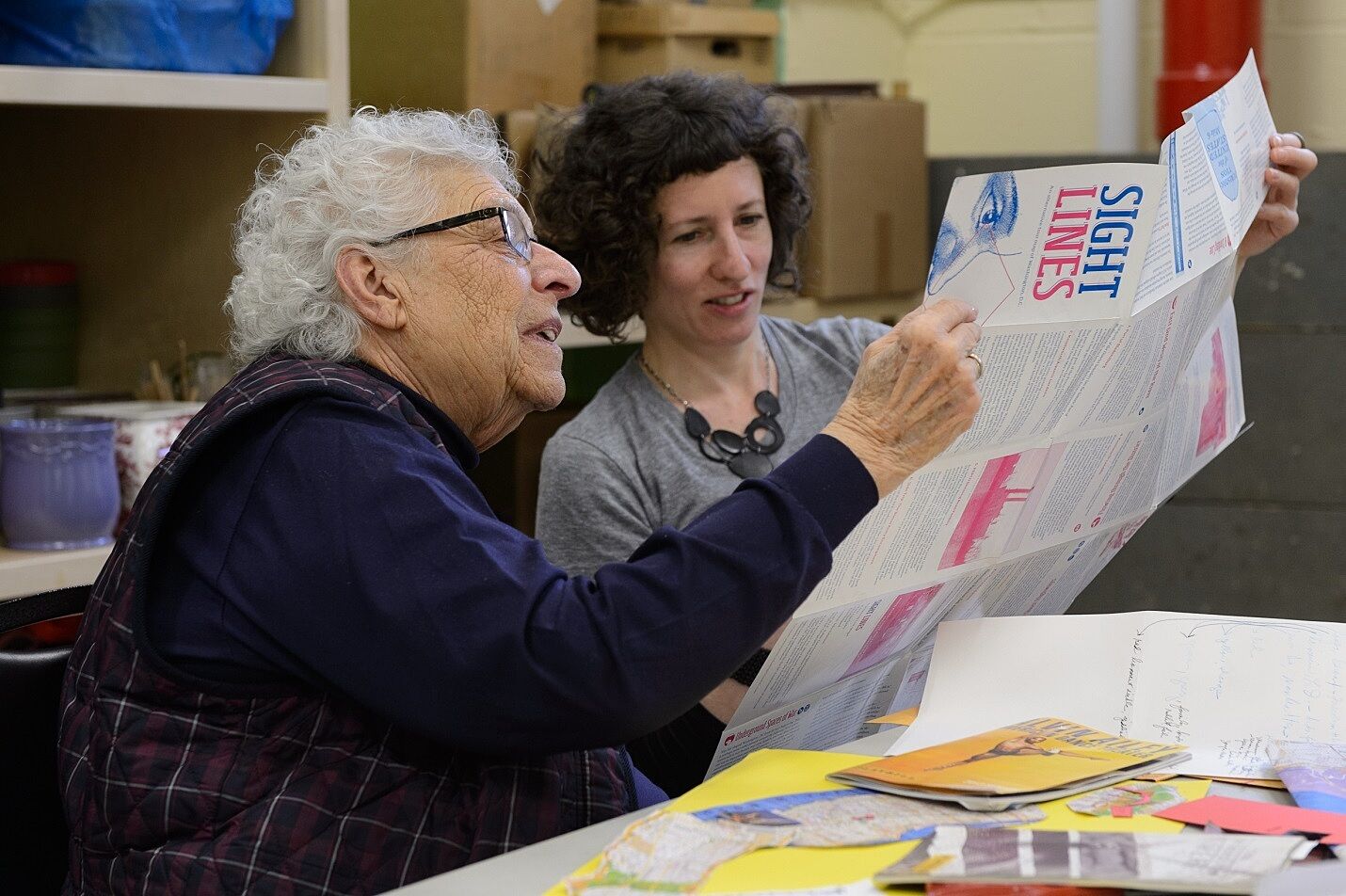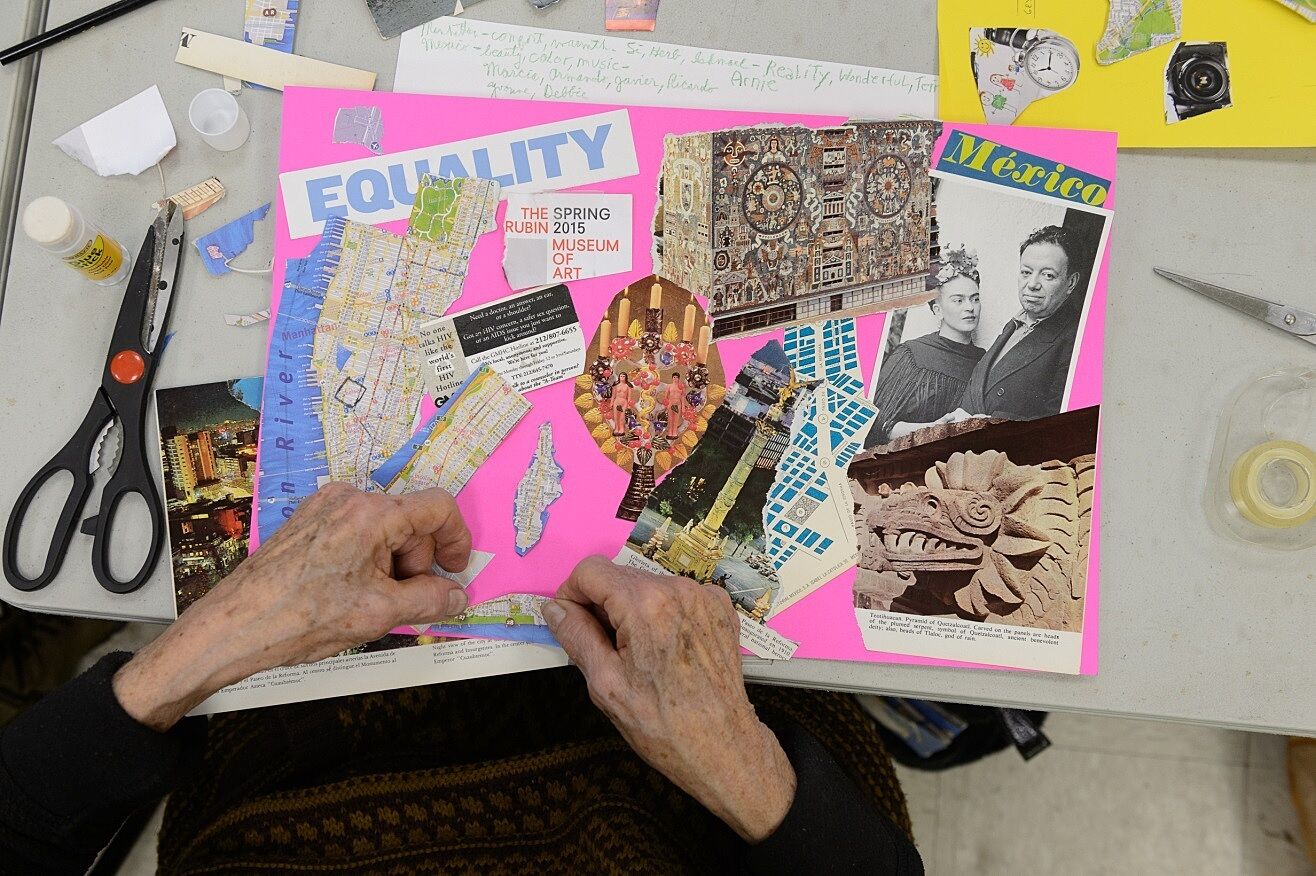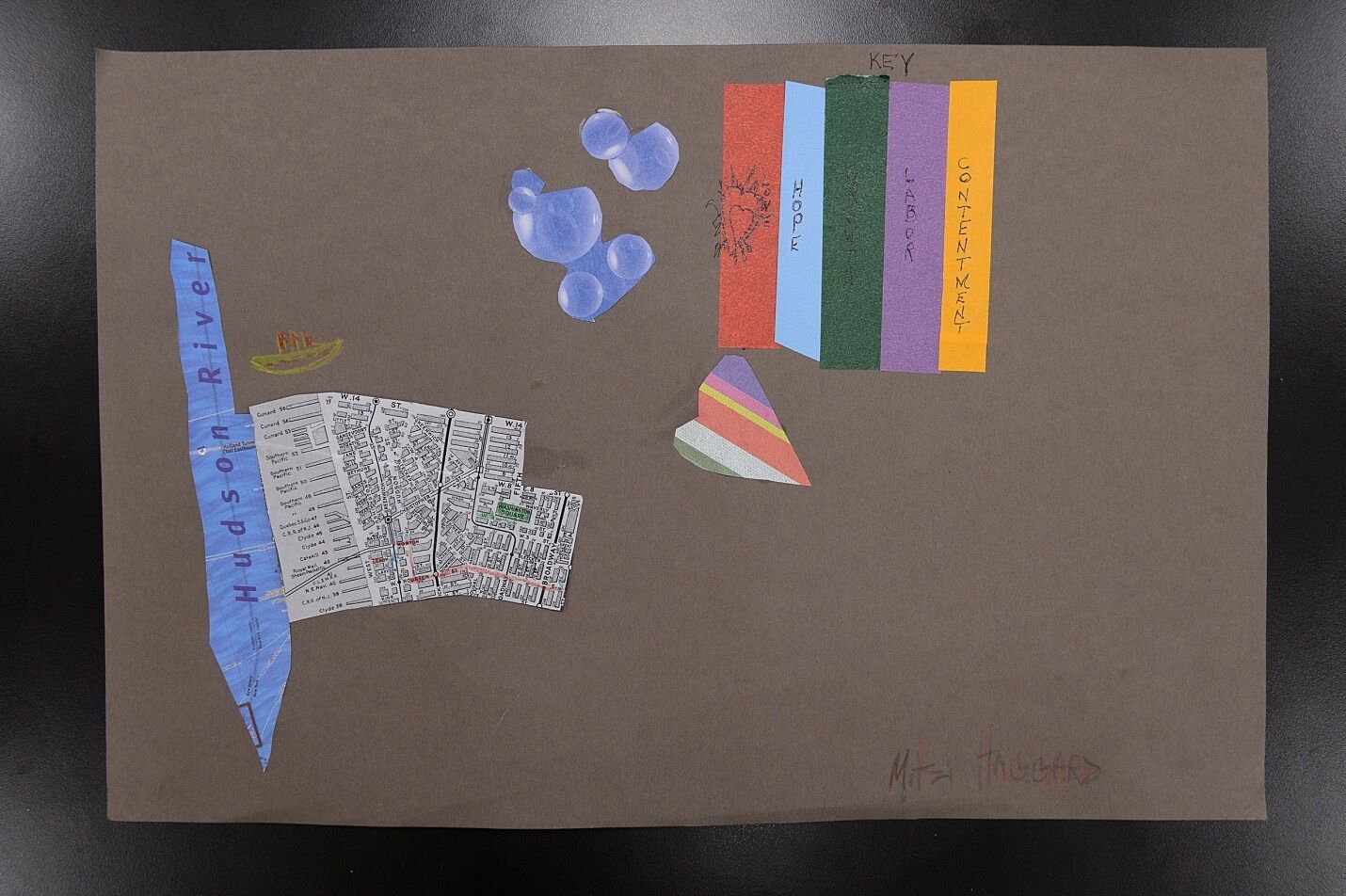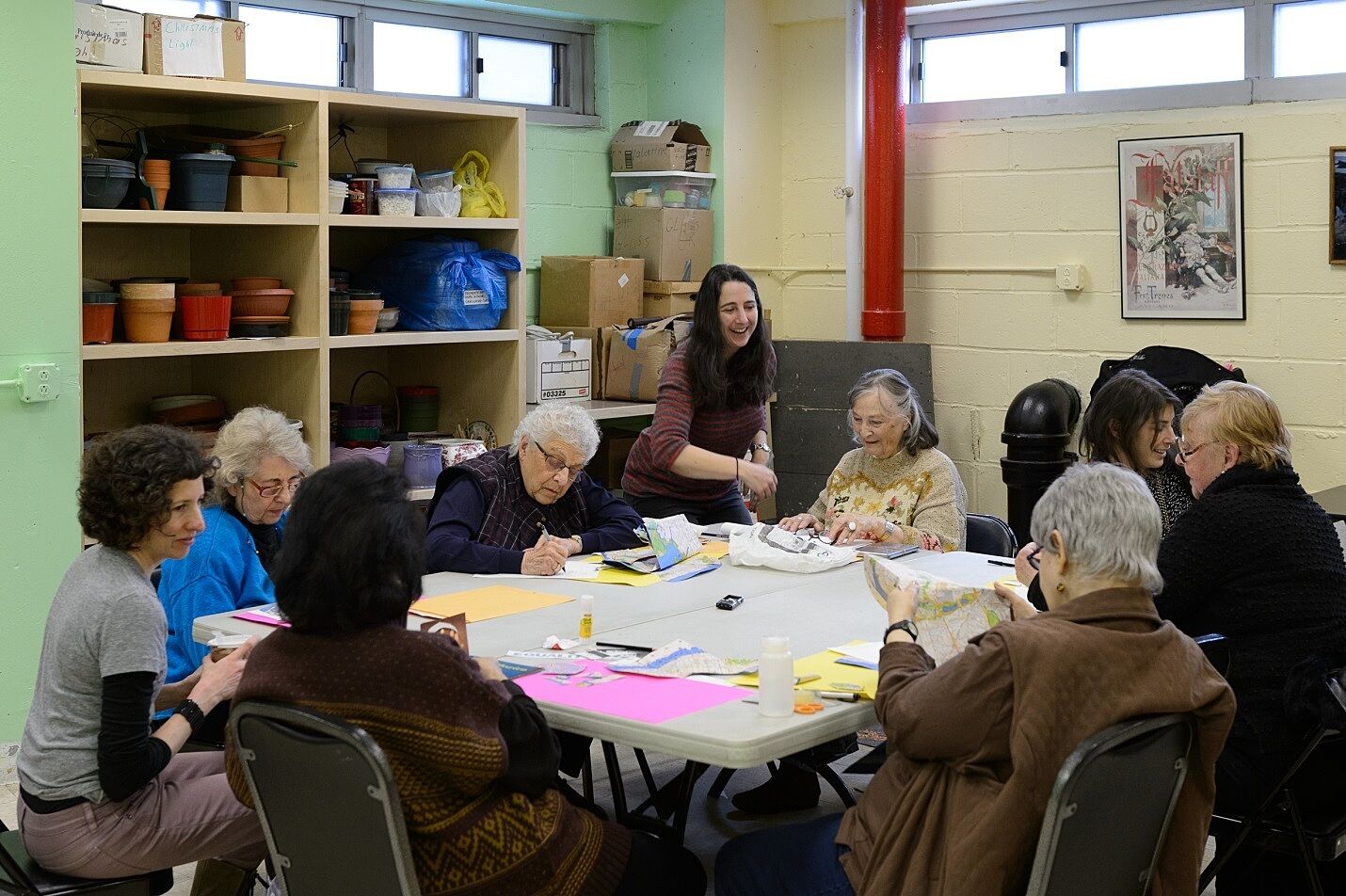Lize Mogel visits Penn South Senior Center
Sep 3, 2015
In March 2015, Whitney Education’s Community Artist-in-Residence Lize Mogel worked on a collaborative art project with participants from the Penn South Program for Seniors. Penn South is a Naturally Occurring Retirement Community (NORC), a community that serves older adults who have aged in place. Many of the participants have lived in the Chelsea neighborhood for years or even decades. Mogel gave a brief overview of her work, touching on her ideas about how a map can be used both as a political tool, and also as a means of creative expression. The Penn South group made their own map “mash-ups”—collages of maps, drawings, photographs, text, and other materials that creatively reinterpret what the Chelsea neighborhood represents to them.
The participants’ rich history in the neighborhood allowed them to incorporate vivid memories and stories into this project. For example, one participant split her map between images of the neighborhood and images of Mexico where her family has lived for many years. She explained: “It is really fun for me to be doing the Mexico part. I knew the minute it was said last week that we could have different places, not just where we lived, I knew. . .that I would have something from Mexico right in the center because I felt that’s where my heart really is.”
Another participant referred to her map mash-up as an “emotional map.” She reminisced with the group about how the area was the center of her youth and explained the features on her map that correspond with her multicolored key: “This is my key. This is love, hope, growth, labor, and contentment. . .I focused on the Village and Hudson River because the docks are here and I used to take liners to Europe. And using this key I marked streets that were important to me. And for the ‘growth’ one I marked the Washington Square area because that’s where a day care was when my son was little. It was a very radical place at the Peace Church, it was the end of the Vietnam War. The bubbles go with my hope, because I came to be in theater—they didn’t burst!”
When everyone looked at their maps together, they told a unique story about the neighborhood’s past and present. The participants discussed the changing demographics of the city in the last several decades. Some paid homage to the neighborhood’s importance in LGBT history, while others expressed a personal connection to the neighborhood because of what it means to them now as individuals living truly independently, some for the first time in their lives. One participant observed: “For the first time in my life it’s all about me!” This mapping project introduced the participants to different ideas about their relationship to the neighborhood, and gave them the freedom to incorporate their personal politics, memories, and stories. As one participant remarked: “I will look at maps so differently now!”
Hannah Heller, Teachers College/Whitney Museum Research Fellow




